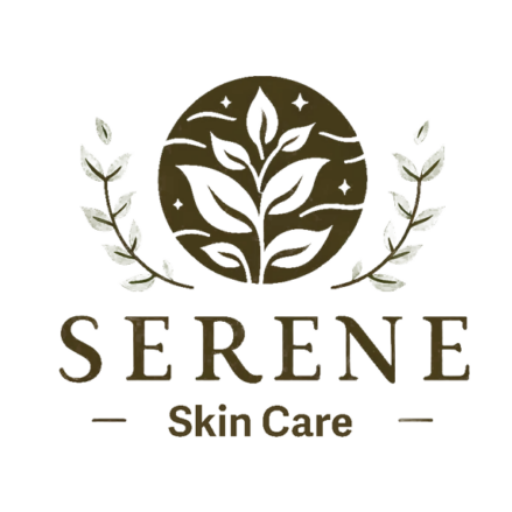In the ever-evolving world of skincare, essential oils have emerged as a powerful and natural solution for advanced skincare needs. These potent oils, derived from plants and flowers, have been used for centuries for their healing properties. Today, they are gaining popularity in the beauty industry for their ability to nourish, rejuvenate, and restore the skin. From reducing wrinkles to calming inflammation, essential oils are revolutionizing the way we care for our skin. Discover the transformative power of these oils and unlock the secrets to a radiant and youthful complexion.
Benefits of Essential Oils in Skincare
Essential oils have long been used for their therapeutic properties and aromatic benefits, but they also hold incredible potential for improving the health and appearance of our skin. From improving skin health to reducing inflammation and enhancing moisture, essential oils can be a game-changer in our skincare routine.
Improved Skin Health
One of the significant benefits of incorporating essential oils into our skincare routine is the improvement of overall skin health. Essential oils, such as lavender, tea tree, and chamomile, possess antimicrobial properties that can help combat bacteria and keep our skin clean and clear. These oils can be particularly beneficial for individuals struggling with acne or blemishes.
Additionally, essential oils contain powerful antioxidants that neutralize free radicals and protect the skin from oxidative stress, which can lead to premature aging and damage. By incorporating essential oils into our daily skincare routine, we are effectively nourishing and protecting our skin.
Anti-Aging Properties
Another remarkable benefit of essential oils in skincare is their anti-aging properties. Essential oils like rosehip seed oil are rich in vitamins A, C, and E, as well as essential fatty acids. These nutrients promote collagen production, improve skin elasticity, and diminish the appearance of fine lines and wrinkles.
Moreover, essential oils can help fade hyperpigmentation and age spots, giving our skin a more even tone and youthful radiance. By incorporating essential oils into our anti-aging skincare routine, we can unlock the natural power of these oils to turn back the clock on our skin.
Reduced Inflammation
Inflammation is a common concern for many individuals, whether in the form of redness, irritation, or skin conditions like eczema or rosacea. Essential oils, such as chamomile and lavender, possess anti-inflammatory properties that can help soothe and calm irritated skin.
These oils work by reducing pro-inflammatory cytokines in the skin, which are responsible for triggering inflammatory responses. By incorporating essential oils into our skincare routine, we can effectively address inflammation and achieve a calmer and more balanced complexion.
Enhanced Moisture and Hydration
Dry and dehydrated skin can be a constant battle for many individuals, especially in dry climates or during the winter months. Essential oils like rosehip seed oil and chamomile oil are excellent for providing deep hydration and moisturization to the skin.
These oils work by strengthening the skin’s natural moisture barrier, preventing water loss, and locking in moisture. By incorporating essential oils into our skincare routine, we can achieve a more nourished and hydrated complexion, resulting in a healthy and glowing appearance.
Most Effective Essential Oils for Skincare
With a plethora of essential oils available, it’s essential to know which ones are most effective for skincare. While personal preferences and skin types may vary, several essential oils have proven to be particularly beneficial for the skin.
Lavender Oil
Lavender oil is known for its soothing and calming properties, making it a popular choice for individuals with sensitive or irritated skin. It possesses anti-inflammatory and antibacterial properties, making it an excellent choice for acne-prone skin as well.
Tea Tree Oil
Tea tree oil is a powerful antimicrobial oil that is widely used in skincare products for its ability to combat acne-causing bacteria. Its natural antifungal properties also make it effective for treating fungal infections such as athlete’s foot or toenail fungus.
Rosehip Seed Oil
Rosehip seed oil is rich in antioxidants, essential fatty acids, and vitamins A, C, and E, making it a powerhouse for anti-aging skincare. It promotes collagen production, reduces the appearance of wrinkles and fine lines, and helps fade hyperpigmentation and scars.
Chamomile Oil
Chamomile oil is renowned for its calming and soothing properties, making it an excellent choice for sensitive skin. It possesses anti-inflammatory properties that can help alleviate redness, irritation, and skin conditions like eczema or rosacea.
How Essential Oils Work in Skincare
Understanding how essential oils work in skincare is crucial to harnessing their full potential. From penetrating the skin to stimulating collagen production and providing antioxidant effects, essential oils play an integral role in improving the health and appearance of our skin.
Skin Penetration
Essential oils have unique molecular structures that allow them to penetrate the skin more effectively than many other skincare ingredients. The small molecular size of essential oils enables them to permeate the skin’s outer layer, reaching the deeper layers where they can exert their therapeutic effects.
Stimulating Collagen Production
Collagen is a crucial protein that gives our skin its structure, elasticity, and firmness. As we age, collagen production naturally declines, leading to sagging and wrinkled skin. Essential oils like rosehip seed oil contain vitamins and nutrients that stimulate collagen production, promoting a youthful and plump appearance.
Antioxidant and Anti-inflammatory Effects
Essential oils are rich in antioxidants, which help fight against free radicals and neutralize their damaging effects on the skin. Free radicals are unstable molecules that can damage cells, leading to premature aging and skin damage. By incorporating essential oils into our skincare routine, we can provide our skin with a powerful defense against oxidative stress.
Additionally, essential oils possess anti-inflammatory properties that can help reduce redness, inflammation, and irritation in the skin. This makes them excellent for individuals with sensitive or acne-prone skin, as well as those with conditions like eczema or rosacea.
Balancing Oil Production
Contrary to popular belief, essential oils can also help balance oil production in the skin. Essential oils like lavender and tea tree oil have been shown to regulate sebum production, making them beneficial for individuals with oily or acne-prone skin.
By incorporating essential oils into our skincare routine, we can achieve a balanced complexion and prevent excessive oiliness or dryness.
Incorporating Essential Oils into Your Skincare Routine
Now that we understand the benefits and how essential oils work in skincare, let’s explore how to incorporate them effectively into our daily routine.
Essential Oil Dilution and Safety Precautions
Essential oils are highly concentrated and potent, so it’s crucial to dilute them before applying them to the skin. Most essential oils should be diluted in a carrier oil, such as jojoba oil or almond oil, to ensure they are safe for use.
It is also important to perform a patch test before using any essential oil to check for potential irritation or allergic reactions. To do a patch test, apply a small amount of diluted essential oil to the inside of your arm and wait 24 hours to monitor for any adverse reactions.
Choosing the Right Essential Oil for Your Skin Type
Since everyone’s skin is unique, it’s essential to choose the right essential oil for your specific skin type and concerns. Lavender and chamomile oils are excellent for sensitive or irritated skin, while tea tree oil is ideal for acne-prone or oily skin.
If you have dry or aging skin, consider incorporating rosehip seed oil into your routine, as it provides deep hydration and anti-aging benefits.
Blending Essential Oils with Carrier Oils or Other Skincare Products
To ensure the optimal effectiveness of essential oils, it is often best to blend them with carrier oils or incorporate them into other skincare products. Carrier oils, such as jojoba oil or argan oil, provide additional nourishment and hydration to the skin while diluting the essential oil for safe application.
Alternatively, you can mix a few drops of essential oil into your moisturizer, serum, or facial oil to enjoy their benefits without the need for additional carrier oils.
Popular Essential Oil Skincare Recipes
Looking to create your own essential oil skincare products? Here are a few popular recipes to get you started.
DIY Cleansing Oil
Ingredients:
- 1 tablespoon of jojoba oil
- 1 tablespoon of sweet almond oil
- 3 drops of lavender oil
- 2 drops of tea tree oil
Combine all the ingredients in a dark amber glass bottle and mix well. Use a few pumps of this cleansing oil to remove makeup and impurities from the skin, rinsing with warm water.
Moisturizing Face Serum
Ingredients:
- 1 tablespoon of rosehip seed oil
- 1 tablespoon of argan oil
- 4 drops of chamomile oil
- 3 drops of lavender oil
Mix all the ingredients in a dropper bottle and shake well to combine. Apply a few drops of this serum to clean, dry skin before bed, gently massaging it in using upward motions.
Anti-Aging Facial Mask
Ingredients:
- 1 tablespoon of bentonite clay
- 1 tablespoon of rosehip seed oil
- 1 teaspoon of honey
- 2 drops of frankincense oil
Mix all the ingredients in a small bowl until you achieve a smooth paste. Apply the mask to clean, dry skin and leave on for 10-15 minutes. Rinse off with warm water and pat dry.
Scientific Studies on Essential Oils in Skincare
Numerous scientific studies have investigated the efficacy of essential oils in skincare, further supporting their use for various skin concerns.
Effects of Lavender Oil on Acne
A study published in the Journal of Cosmetic Dermatology found that lavender oil exhibited significant antimicrobial activity against propionibacterium acnes, the bacteria responsible for acne. It also demonstrated anti-inflammatory effects, helping to reduce redness and inflammation associated with acne.
Tea Tree Oil as an Antifungal Agent
Research published in the Journal of Antimicrobial Chemotherapy found that tea tree oil possesses potent antifungal properties. It effectively inhibits the growth of various fungi, making it an excellent natural remedy for conditions like athlete’s foot or toenail fungus.
Addressing Common Skincare Concerns with Essential Oils
Essential oils can address a wide range of skincare concerns, offering natural remedies for common issues.
Acne and Blemishes
Essential oils like tea tree, lavender, and chamomile possess antimicrobial properties that can help combat acne-causing bacteria. They also have anti-inflammatory effects that aid in reducing redness and inflammation associated with acne.
Dry and Dehydrated Skin
Essential oils like rosehip seed oil and chamomile oil provide deep hydration and moisturization to the skin. Their rich nutrient content helps strengthen the skin’s moisture barrier and prevent water loss, resulting in a more nourished and hydrated complexion.
Sensitive and Irritated Skin
If you have sensitive or irritated skin, essential oils like lavender and chamomile can provide soothing and calming effects. Their anti-inflammatory properties help reduce redness, irritation, and itchiness, promoting a balanced and healthy complexion.
Uneven Skin Tone
Essential oils like rosehip seed oil contain vitamins and nutrients that help fade hyperpigmentation and even out the skin tone. By incorporating these oils into your skincare routine, you can achieve a more luminous and radiant complexion.
Precautions and Risks
While essential oils offer many benefits, it’s essential to be aware of the potential precautions and risks associated with their use.
Patch Testing for Allergic Reactions
Before using any essential oil, it’s crucial to perform a patch test to check for any allergic reactions or irritation. Apply a small amount of the diluted oil to the inside of your arm and wait 24 hours to monitor for any adverse effects.
Potential Skin Irritation or Sensitivity
Essential oils are highly concentrated and potent, and some individuals may experience skin irritation or sensitivity when using them. If you notice any redness, itching, or irritation, discontinue use and consult a healthcare professional.
Photosensitivity
Some essential oils, like citrus oils, can cause photosensitivity, making the skin more susceptible to sunburn. It’s important to avoid direct sunlight or use sunscreen when using photosensitive essential oils to minimize the risk of sun damage.
Choosing High-Quality Essential Oils
To ensure the effectiveness and safety of essential oils, it’s important to choose high-quality oils from reputable sources.
Researching the Source and Extraction Methods
When purchasing essential oils, research the source and extraction methods to ensure you’re getting a high-quality product. Look for companies that prioritize sustainable sourcing and use methods like steam distillation or cold-pressing to extract the oils.
Looking for Pure and Organic Oils
Pure and organic essential oils are free from synthetic additives, pesticides, and contaminants. Look for oils that are certified organic to ensure you’re receiving a pure and natural product.
Understanding Essential Oil Labels
Essential oil labels provide valuable information about the oil’s purity, botanical name, and country of origin. Familiarize yourself with essential oil labeling conventions to make informed decisions when selecting oils for your skincare routine.
Conclusion
Incorporating essential oils into our skincare routine can offer a wide range of benefits, from improved skin health to anti-aging properties and reduced inflammation. By understanding how essential oils work in skincare and choosing the right oils for our specific skin concerns, we can harness the power of these natural compounds to achieve a healthy, radiant complexion. However, it is essential to exercise caution, perform patch tests, and choose high-quality oils to ensure both efficacy and safety. With proper knowledge and care, essential oils can be valuable allies in our journey towards advanced skincare.







